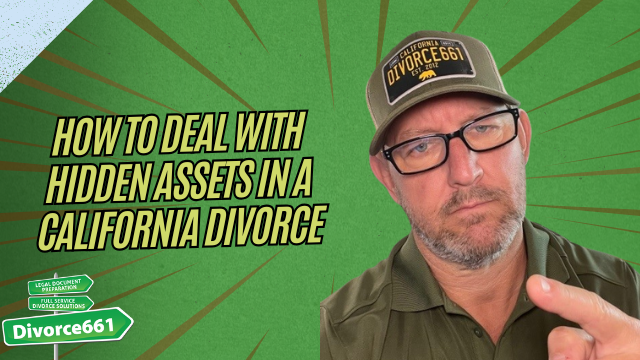How to Deal with Hidden Assets in a California Divorce
Hiding assets during a divorce in California is not just unfair. It can lead to serious legal consequences. Both spouses are required to fully disclose all assets and income so courts can reach a fair settlement. If you suspect your spouse is hiding money, property, or income, acting quickly and methodically is key to protecting your rights.
Why full disclosure matters
Both spouses must disclose all assets and income.
Transparency is the foundation of an equitable divorce. When one spouse hides assets, it skews the division of community property, child support, and spousal support. Courts expect complete financial disclosure, and intentional omissions can result in sanctions, adjustments to the settlement, or other legal penalties.
Common red flags that may indicate hidden assets
- Missing bank or investment accounts from financial disclosures
- Sudden unexplained drops in reported income
- Large, unexplained withdrawals or transfers
- Unreported side businesses or cash income
- Inconsistencies between tax returns and bank deposits
How we uncover hidden assets
Uncovering hidden assets takes patience and a methodical review of financial records. A few of the most effective strategies include:
- Carefully reviewing financial disclosures and comparing them line by line with bank statements and investment records.
- Matching tax returns with bank deposits to identify unreported income. This technique has helped clients recover thousands that were initially concealed.
- Engaging forensic accountants when income streams are complex or when there are business interests and cash transactions.
- Requesting official records and subpoenas when necessary to compel the production of hidden documentation.
Real client example
One client suspected her spouse of hiding income from a side business. By comparing tax returns with bank deposits we discovered thousands of dollars in hidden earnings. That discovery changed the settlement and ensured she received her fair share. This is a clear example of how matching tax returns with bank deposits can be a powerful tool.
The role of forensic accountants
Forensic accountants are specialists in tracing financial activity, spotting patterns, and converting complex financial information into evidence that holds up in court. They can:
- Analyze bank deposits, transfers, and cash flows
- Identify discrepancies between reported income and actual deposits
- Provide expert reports and testimony when needed
What you should do if you suspect hidden assets
If you suspect your spouse is hiding assets, take immediate action. Delays can make evidence harder to find and give the other side time to move funds. Start with these steps:
- Preserve all financial documents you already have, including bank statements, credit card statements, and tax returns.
- Request full financial disclosures through the divorce process and review them carefully.
- Look for red flags like missing accounts, unexplained withdrawals, or income inconsistencies.
- Consult with professionals who can help, such as an attorney and a forensic accountant.
- When warranted, use legal tools to request records or subpoenas to compel disclosure.
How we help
At Divorce661 we specialize in identifying discrepancies and requesting the records needed to uncover hidden assets. Our services include reviewing, filing, and tracking all paperwork. We also work with a trusted network of forensic experts to strengthen your case when necessary. Our flat fee approach means no hidden costs and transparent pricing, and we offer remote services throughout California to make the process easier for you.
Protect your fair share
Hidden assets can drastically alter the outcome of a divorce. By carefully reviewing financial disclosures, using targeted tools like matching tax returns with bank deposits, and bringing in forensic expertise when needed, you can uncover the truth and secure a fair settlement.
If you are worried that your spouse may be hiding money or income, do not wait. Schedule a free consultation at divorce661.com so we can help you protect your rights and pursue a fair resolution.

